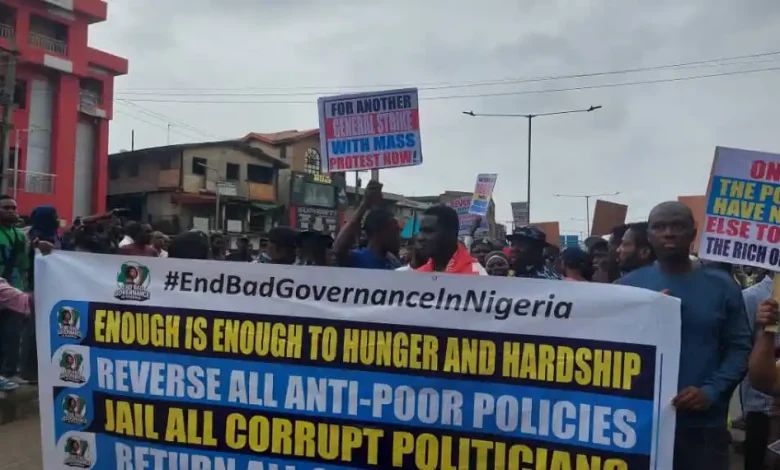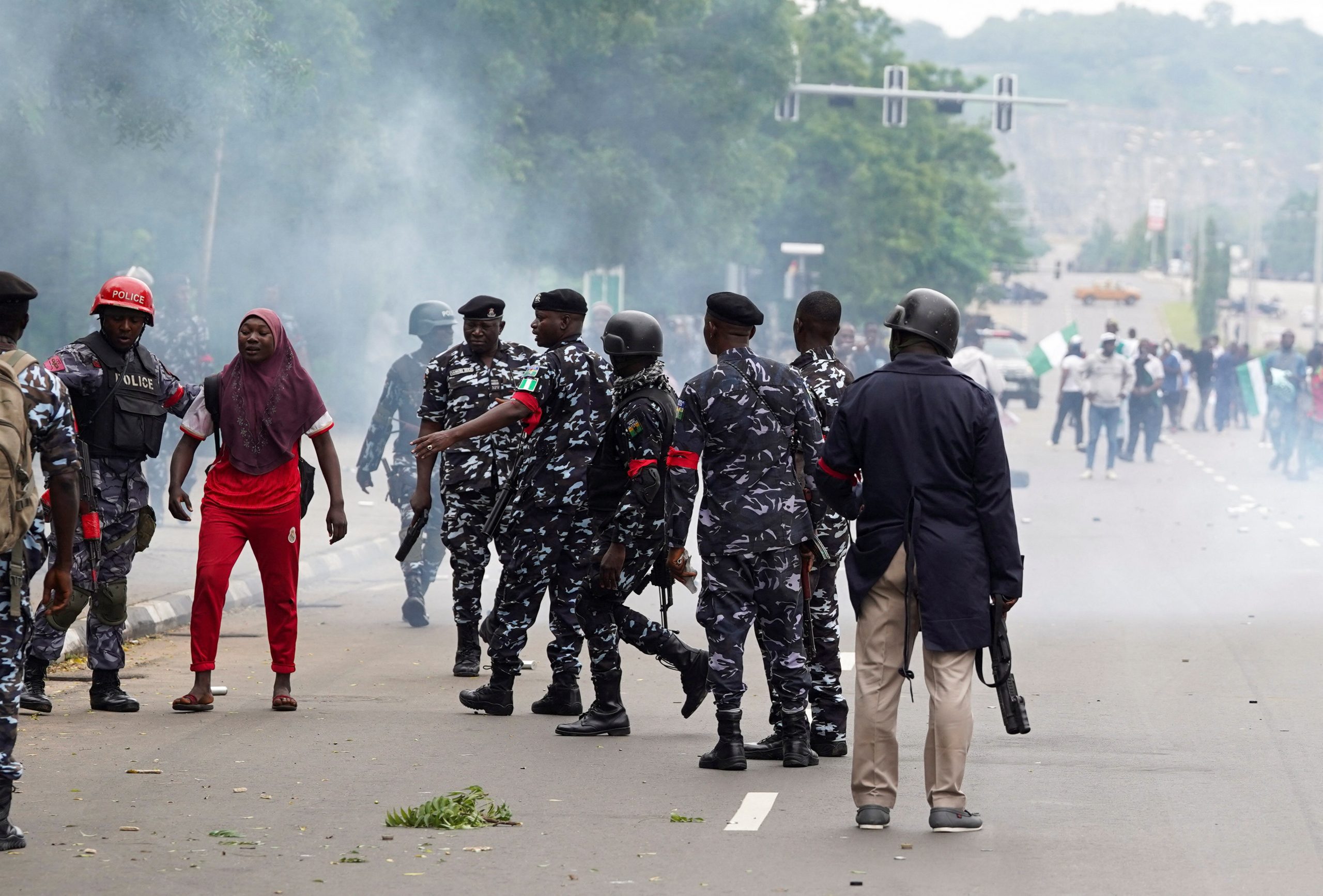Protests Over High Cost Of Living Leaves 3 People Dead In Nigeria

On Thursday, when protestors staged demonstrations across the West African nation against issues related to governance and the rising cost of living, at least three protesters were killed in Nigeria’s Kaduna state, according to Reuters reporters and eyewitnesses.
Mansur Hassan, a spokesman for the Kaduna State Police, confirmed that tear gas, not live bullets, was shot at the demonstrators.
Additionally, eyewitnesses claim that police used tear gas to disperse protesting masses in Abuja, the country’s capital.
Protesters voiced their dissatisfaction with economic policies that have resulted in widespread inflation and increased hardship for average Nigerians by holding demonstrations in Abuja, Lagos, the commercial hub, and several other cities.

President Bola Tinubu has vowed to pursue necessary changes to keep Nigeria afloat. In Lagos, armed police monitored protesters marching to two authorized locations, causing some shopping malls to close. Inspired by Kenya’s June protests, Nigerians are demanding reinstated petrol and electricity subsidies, free education, and measures against insecurity. In Abuja, the military set up roadblocks while some protesters gathered at a stadium. Youths in Maiduguri, despite heavy security, protested government policies and expressed frustration.
Prior to the demonstrations, the authorities declared that talks were welcome.
Although citizens are complaining that lawmakers are not making enough sacrifices themselves, Tinubu has encouraged them to put up with his reforms.
Since taking office, Tinubu removed fuel subsidies, devalued the naira, and hiked electricity tariffs, causing inflation to soar past 34%. Consumer inflation hit a 28-year high of 34.19% in June. Nigerians face widespread insecurity, with armed gangs kidnapping residents and children in the north. Previous protests were led by labor unions, but Thursday’s march saw mostly unemployed youth. To address the economic hardship, Tinubu signed a new minimum wage law, though many Nigerians remain self-employed or jobless.
Read Also: Bagbin Urges Government To Learn From Kenya ‘s Unrest



